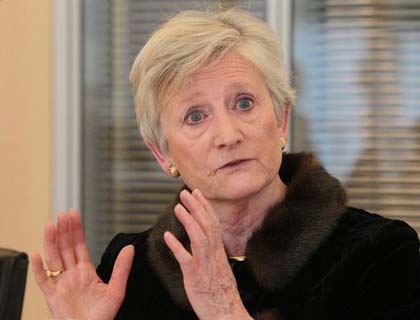LONDON - A British government advisor accused China and Russia on Monday of being behind cyber-attacks on other states, ahead of a major London conference designed to agree some global rules on cyberspace.
Pauline Neville-Jones, Prime Minister David Cameron's special representative to business on cyber security, told BBC radio there was a real threat posed by people trying to obtain Britain's national security secrets.
When the interviewer noted that China and Russia are often blamed for involvement in such attacks, Neville-Jones replied: "They certainly are. Some governments are more interested in this kind of activity.
"But there are a lot of private individuals who do this kind of 'hoovering' of other people's systems and then try and sell the stuff that they've managed to obtain to buyers.... There are a lot of actors in this."
Pressed again on whether China and Russia were the biggest players, the former security minister said: "They are certainly some of them."
But Neville-Jones insisted she did not want to "point the finger", particularly ahead of the two-day London conference attended by representatives of China and Russia, as well as US Secretary of State Hillary Clinton.
She said: "What we want to try and do is to create a climate in which people feel that obeying the rules and actually behaving above board serves the national interest and that it is damaging in the end to try to play both sides.
"Because if you are a company that comes from a country like China, you can suffer if in the end people believe it is potentially threatening to employ your products."
In an article in The Times on Monday, Iain Lobban, director of the British intelligence agency GCHQ, warned of a "disturbing" rise in cyber-attacks on government and industry systems.
The Government Communications Headquarters chief said the attacks included "one significant (but unsuccessful) attempt" to acquire sensitive information from the computer systems used by the Foreign Office earlier this year.
"The volume of e-crime and attacks on government and industry systems continue to be disturbing," he wrote.
This included attempts to steal British ideas and designs, he said, which "represents an attack on the UK's continued economic wellbeing".
Criminals were also using cyberspace to extort money and steal identities, Lobban said, to the extent that "we are witnessing the development of a global criminal market place". (AFP)

